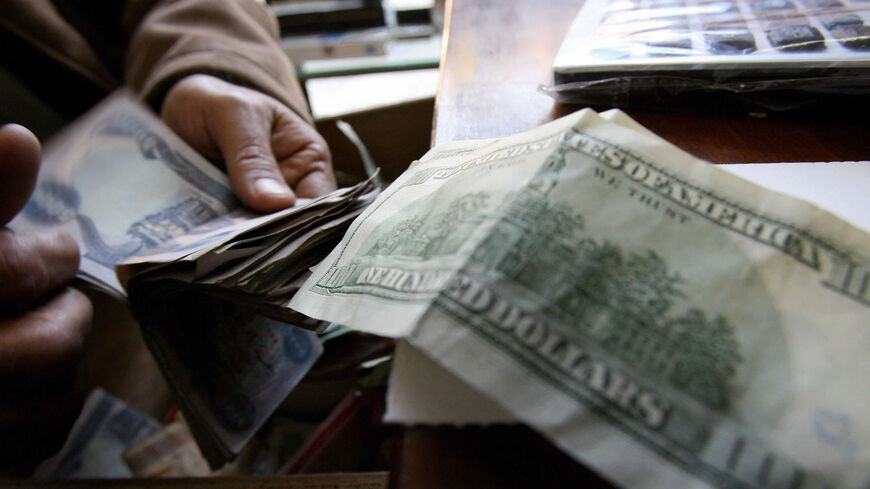Iraq's Central Bank has a new plan to increase the value of the Iraqi dinar against the US dollar.
The bank released a statement this week outlining the plan. The measures are as follows:
- Reducing the US dollar to Iraqi dinar exchange rate for travel or internet purchases from 1,470 dinars to 1,465.
- Helping private banks strengthen their foreign currency reserves that are not the US dollar. The Central Bank specifically named the Chinese yuan, the euro, the Emirati dirham and the Jordanian dinar.
- Providing options to the public for selling foreign currencies in government banks for the purpose of travel for the Hajj pilgrimage, medical treatment and study.
What it means: For years, the official rate of the US dollar to the Iraqi dinar was $1 to 1,182 dinars. Both dollars and dinars are used in Iraq, and the rate on the street was often rounded up to 1,200 dinars to the dollar.
In December 2020, Iraq's Central Bank lowered the dinars’ exchange rate to 1,470 dinars to the dollar for individuals and 1,460 for banks. The decision was due to a liquidity crisis, low oil prices and economic hardship related to the coronavirus pandemic.
Central banks often devalue their own currency in a bid to boost exports. Exporting something priced in the local currency becomes cheaper in foreign currencies. Iraq’s major export, however, is oil, and oil is priced in US dollars.
Another reason a country may devalue its currency is to reduce local debt burdens. Any US dollars Iraq collects, such as via oil revenue, are now worth a larger amount in dinars. This makes more sense in the case of Iraq, since the low oil prices in 2020 led to less government revenue converted to dinars.
The Iraqi government wanted to increase its cash amount with the devaluation, the Iraqi Kurdish news outlet reported in 2020. Any US dollars that the government receives are now worth more in dinars.
Devaluing currency has significant downsides. Argentina's peso devaluation has been a disaster, leading to a liquidity crisis in the South American country.
Why it matters: Iraqi Prime Minister Mohammed Shia al-Sudani, who took office in October, has said he wants to increase the value of the Iraqi dinar.
“The interests of the needy were not taken into consideration in devaluing Iraq's currency. We tend not to repeat that in this Cabinet,” said Sudani in November, as reported by Kurdistan 24.
For Iraqis who are paid in dollars, the devaluation potentially gives them more purchasing power. But people paid in dinars may lose purchasing power, since imports and exports are paid for in dollars. A devaluation also means imported goods are more expensive in the local currency.
Like other countries in the region, the Iraqi economy has suffered as a result of Russia's invasion of Ukraine. The war led to food and fuel price increases in Iraq.
Know more: Other central banks in the Middle East are also showing increased interest in the Chinese yuan. Saudi Arabia is considering pricing oil sales to China in yuan, as opposed to the US dollar. Egypt decided in August to issue bonds denominated in yuan. In April, the Bank of Israel added Chinese yuan as well as Australian and Canadian dollars to its reserves.







